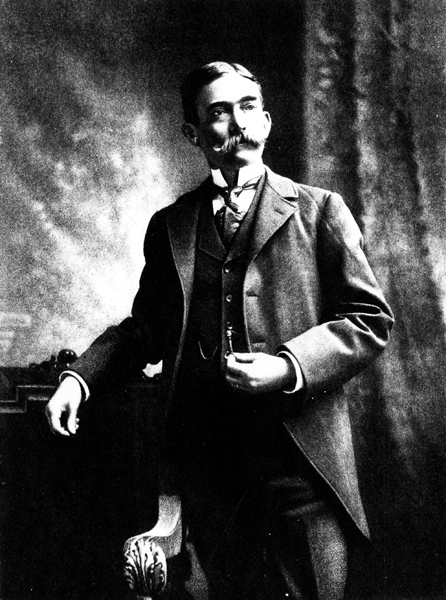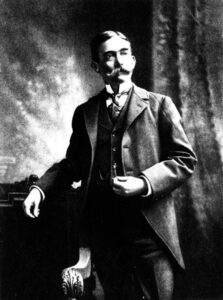William Heard
Democrat William Heard, an accountant and banker, won the governorship in 1900 with strong support from Murphy J. Foster, his predecessor.

Courtesy of State Library of Louisiana
William Wright Heard. Unidentified
Democrat William Heard, an accountant and banker, won the governorship in 1900 with strong support from Murphy J. Foster, his predecessor. Although Heard’s term in office was relatively uneventful, particularly when compared to the turbulent period following Reconstruction, his restrained style and quiet manner conveyed a sense of much-needed stability and calm to many Louisianans.
Born in Union Parish on April 28, 1853, William Wright Heard was the son of Stephen S. and Mary Ann Wright Heard. He attended local schools and an academy in Farmerville.
In 1876, Heard was elected to the district court, serving as clerk until 1872, then deputy clerk. He won election to the Louisiana House of Representatives in 1884 and the state senate in 1888. In 1892, he was elected state auditor of public accounts, serving under Foster, and was subsequently reelected in 1896.
As governor, Heard’s signature accomplishment was the dissolution of the convict leasing system as called for in the Louisiana Constitution of 1898. Under this system, the state “leased” prisoners to private employers, retaining almost no control over their use. While the system relieved the state of a financial obligation, prisoners were often exploited while lessees rendered negligible supervision. Heard is credited with transferring oversight of the prisons to the State Penitentiary Board of Control.
Heard accomplished other reforms for the state, principally in education, labor, and agriculture. A supporter of education for rural children, he created a state board of education and parish school boards. When the boll weevil invaded Louisiana cotton fields in 1903, Heard called the state legislature into a special session and established the State Board of Pest Control. He also signed legislation instituting a Bureau of Labor Statistics and an Oyster Commission, and was responsible for the official state seal, with its motto “Union, Justice, Confidence.”
His long tenure in public service prompted one historian to write that Heard “had spent virtually his entire adult life on the public payroll, mostly in second-level administrative positions where little leadership was called for. For that reason, he may possess the distinction of having been the first modern career bureaucrat to occupy Louisiana’s political summit.”
On the completion of his gubernatorial term, Heard returned to accounting and became vice president of the State Bank of New Orleans in 1904. He was moderator of the Concord Baptist Association, and served as president of the State Baptist Convention for one term and vice-chancellor for two terms. He died in New Orleans on June 1, 1926, and was interred in Metairie Cemetery.
This entry was adapted from Sidney J. Romero’s entry for the Dictionary of Louisiana Biography, a publication of the Louisiana Historical Association in cooperation with the Center for Louisiana Studies at the University of Louisiana, Lafayette.
Sources: Miriam G. Reeves, The Governors of Louisiana (1962); Roy Clashan, American Governors and Gubernatorial Elections, 1775-1975 (1975); letter of May 11, 1983, from Luther E. Hall, Jr., grandson of Governor Heard.
